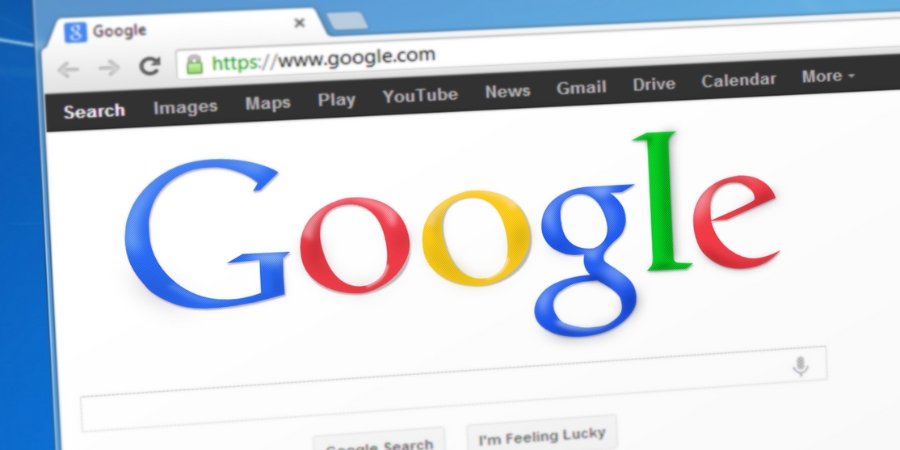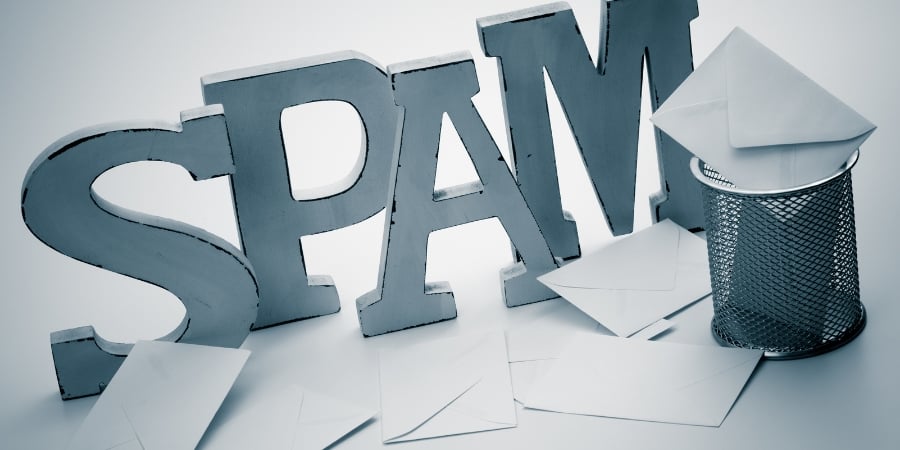Understanding Google Penalties and How You Can Recover From Them
By Adam S on Tue, Feb 21, 2023 @ 06:36 AM

We all know that Google is the king when it comes to the online search engine arena. And if you’re looking to get found on the web, then understanding how to optimize your website for Google is essential.
However, as much as we may strive for perfection, mistakes can happen, and these mistakes could lead to a number of potential penalties from Google. This can be especially damaging for businesses that are heavily reliant on organic search engine traffic for their sales.
The marketing professionals here at BroadVision Marketing want to help you understand Google penalties and how you can recover from them. That way, should any mistake happen, you know what can be done to help fix it.
What is a Google Penalty?
A Google penalty is a consequence of violating Google’s Webmaster Guidelines. If your site is penalized, it means that Google has removed or lowered your site in the search results for one or more terms. This can have a significant impact on your traffic and revenue.
There are two types of penalties: manual penalties and algorithmic penalties. If your site has been penalized, you will need to take action to correct the issue and submit a reconsideration request to Google. Once the issue has been resolved, Google will review your site again and may lift the penalty.
How Can You Tell If Your Site is Penalized by Google?
If you think your site may have been penalized by Google, there are a few things you can do to check. First, check your site's traffic. If you see a sudden drop in traffic, it could be an indication that your site has been penalized.
Next, check Google Search Console. If you have any messages from Google saying that your site has been penalized, it will be listed here.
Finally, check the Google algorithm change history. If there have been any recent algorithm changes that could explain the drop in traffic to your site, it will be listed here.
If you confirm that your site has been penalized by Google, don't panic! There are a few things you can do to try and recover from the penalty.
First, try to identify why your site was penalized. This will help you avoid making the same mistake in the future.
Next, reach out to Google and let them know that you're trying to fix the problem. They may be willing to reconsider your penalty if they see that you're taking steps to improve your site.
Finally, make sure to take whatever steps are necessary to fix the problem so that your site doesn't get penalized again in the future! This step is important so that your site does not keep slipping down the ranks.

The Different Types of Google Penalties
There are a few different types of Google penalties that can be levied against a website. These include manual penalties, algorithm-based penalties, downranking, and delisting.
Manual penalties are assessed by a human reviewer at Google who has determined that your site has violated one or more of their webmaster guidelines. These violations can range from something as simple as having too many spammy links pointing to your site, to more serious offenses like participating in link schemes or keyword stuffing. If you receive a manual penalty, you will be notified in Google Search Console with specific instructions on how to fix the issue.
Algorithm-based penalties are generally much less severe than manual ones, but can still negatively impact your traffic and visibility in search results. These penalties are usually the result of your site engaging in black hat SEO tactics like cloaking or doorway pages. If you think your site may have been penalized by an algorithm change, you can check Google’s Webmaster Central blog for announcements about recent updates.
Downranking is when your site’s overall ranking in search results is lowered for certain queries. This can happen for a variety of reasons but is often the result of Google devaluing the quality of your content or links. If you think your site has been downranked, take a look at your average position in search results and see if there has been any significant change.
Delisting is when Google removes your website from its lists entirely. That means your website will not show up for any keywords and can be devastating for businesses. It typically happens as the result of having infringing content on the website and often requires that the content be taken down entirely.
Keyword Stuffing
Keyword stuffing is a black-hat SEO technique that involves cramming as many keywords as possible into your website's content in an attempt to artificially inflate your site's ranking in search engine results pages (SERPs). This technique is considered a form of spam, and can result in your site being penalized by Google.
To fix keyword stuffing, simply remove any excessive or irrelevant keywords from your site's content. This includes both the body of your text and any meta tags or alt text associated with images. Once you've removed the offending keywords, be sure to revise your content so that it reads naturally and provides value to users.
Duplicate Content
When it comes to Google penalties, duplicate content is one of the most common offenses. Duplicate content is defined as content that appears on the internet in more than one place. This can happen when a website owner unintentionally posts the same article on their site multiple times, or when another site republishes your content without permission. Duplicate content can also be created when multiple websites use the same template or design, resulting in similar pages with very little original content.
The good news is that if you have been penalized for duplicate content, it is relatively easy to fix. The first step is to identify all the duplicated content on your site and remove it. If you have republished articles from other sources, be sure to attribute them correctly and include a link back to the original source.
You should also make sure that all your website’s pages are unique and contain original content. Finally, if you have been using a template or design that is too similar to other sites, consider switching to a new one. By taking these steps, you can avoid Google penalties for duplicate content and improve your website’s ranking in search results.

Unnatural Links
Unnatural links are any links that are generated in an artificial or unnatural way. This includes, but is not limited to, link farms, link wheels, and other types of black hat seo linking schemes. These links are often used to try to improve a website's search engine rankings.
If your website has been penalized for having unnatural links, it's important to take action to remove them. This can be a difficult and time-consuming process, but it's necessary in order to avoid further penalties from Google.
There are a few ways to go about removing unnatural links. You can contact the website owners that are linking to you and ask them to remove the links. You can also use Google's disavow tool to tell Google which links you want them to ignore.
If you're not sure whether a link is natural or unnatural, err on the side of caution and assume that it's unnatural. It's better to remove a few unnecessary links than risk being penalized again by Google.
Thin Content
Thin content is defined as having little or no value to the reader. This can be caused by a number of factors, including duplicate content, keyword stuffing, and doorway pages.
To fix thin content, you need to add more valuable, relevant content to your site. This can be done by creating new blog posts, adding new pages, and improving your existing content. You should also make sure that your site is well-linked so that search engines can easily find and index your new content.
Poor Content Structure
Poor content structure refers to the way in which your website's content is organized. It can be a major contributor to poor search engine optimization (SEO) and can lead to penalties from Google. There are a number of things that can contribute to poor content structure, including:
- Illegal or unethical content
- Keyword stuffing
- Duplicate content
- Thin content
If you think you might be suffering from any of these issues, don't panic! There are ways to fix them. First, take a look at the content on your website and make sure it follows Google's guidelines.
Next, audit your content to ensure that it is unique and adds value to the reader. You can also use tools like keyword research to help you identify any potential keyword stuffing issues. Finally, if you have thin content, try to beef it up by adding more information.
Spam Content
Spam content is any content on your website that is designed to trick search engines or visitors. This can include things like duplicate content, keyword stuffing, and invisible text. While spam content may help you get higher search rankings in the short-term, it will ultimately hurt your website in the long run. Google penalizes websites with spam content, and it can be very difficult to recover from these penalties.
If you think your website has been penalized for spam content, the first thing you should do is review all of your content and remove anything that could be considered spam. Once you have cleaned up your website, you can submit a request to Google for reconsideration.
In most cases, Google will manually review your website and decide whether or not to lift the penalty. However, this process can take weeks or even months. In the meantime, you can try to improve your website's ranking by following best practices for SEO, such as creating quality content, optimizing images, and building out a well-structured link profile.

Misleading Content
When it comes to Google penalties, "misleading content" refers to any type of content that gives the reader false or inaccurate information. This can include anything from typos and factual errors to flat-out lies. If your site is full of misleading content, it's likely that Google will eventually catch on and penalize you for it.
The good news is that, in most cases, you can fix the problem by simply correcting the offending content. Once you've done that, just submit a request to Google through their Webmaster Tools and they'll typically lift the penalty within a few weeks. So if you're ever hit with a Google penalty, don't panic - just take care of the problem and then wait for things to go back to normal.
BroadVision Marketing Is Here to Help You Avoid Google Penalties In Your Content
If you've been hit with a penalty, it's important to take action immediately to correct the violation and avoid further damage to your website's traffic and ranking. BroadVision Marketing can help you identify and fix the issue, as well as put in place a long-term content strategy to avoid penalties in the future. We can also help you recover from any existing penalties so that you can get back on track with your SEO goals. To find out more, please contact BroadVision Marketing today!
You May Also Like
These Related Stories

SEO In 2019: What You Need To Know

Does Your Business Have Enough of the Right Kind of Reviews?

.png?width=302&height=75&name=BVM%20Logo%20-%20transparent%20(1).png)





No Comments Yet
Let us know what you think